Venezuelan Riot Police Break Up Opposition Protest
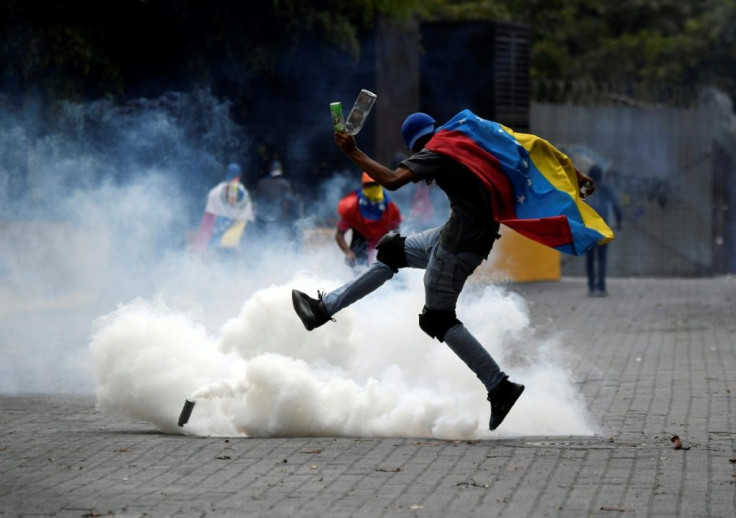
Venezuelan riot police fired tear gas Tuesday to break up a demonstration in Caracas called by opposition leader Juan Guaido as he seeks to ramp up demands for elections to replace leftist President Nicolas Maduro.
Riot police moved in quickly to break up the demonstration soon after thousands of protesters began marching a six-kilometer (four-mile) route towards the National Assembly building from the east of the capital.
In the aftermath of the protest, elite FAES police arrested an opposition lawmaker, drawing angry protests from the opposition.
Guaido, recognized as interim president by more than 50 countries including the United States, has been seeking to revive mass protests against Maduro which have largely fizzled since spiking early last year.
As the opposition leader attempted to negotiate with a police cordon blocking the path of the march on Tuesday, they fired tear gas at the demonstrators, AFP reporters at the scene said. The march had only progressed a few blocks.
"This picket today does not represent Venezuela, this picket represents the dictatorship," Guaido said, referring to the line of police with riot shields.
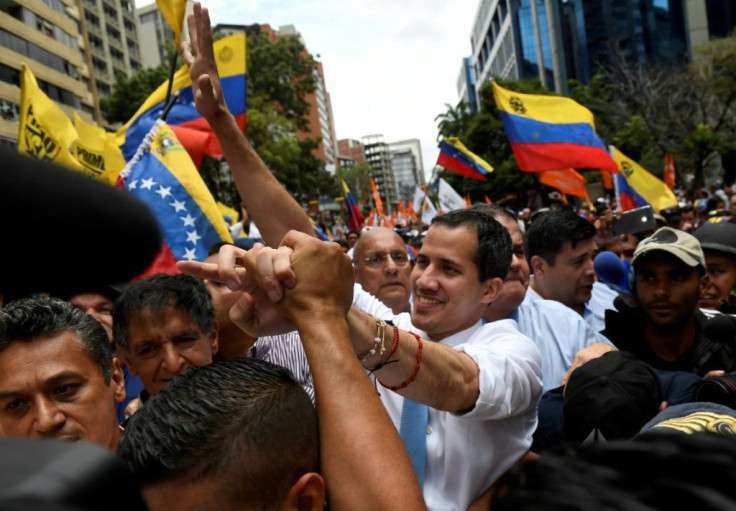
Most of the marchers left the area, but some with their faces covered threw stones at the police.
"A stage of sustained struggle begins today," Guaido said earlier as he addressed the crowd through a megaphone from the back of a truck.
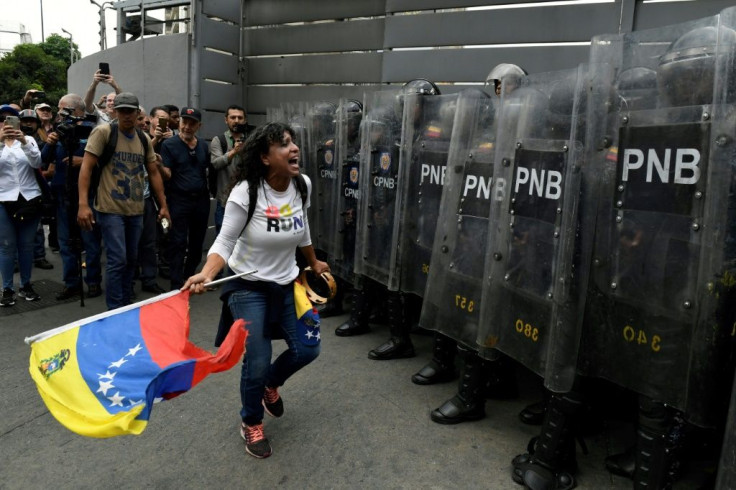
The opposition condemned what they said was a heavy-handed FAES raid on a hotel in east Caracas at which opposition lawmakers were staying.
The police "broke into the rooms with deputies inside," lawmaker Guillermo Palacios told reporters outside the hotel.
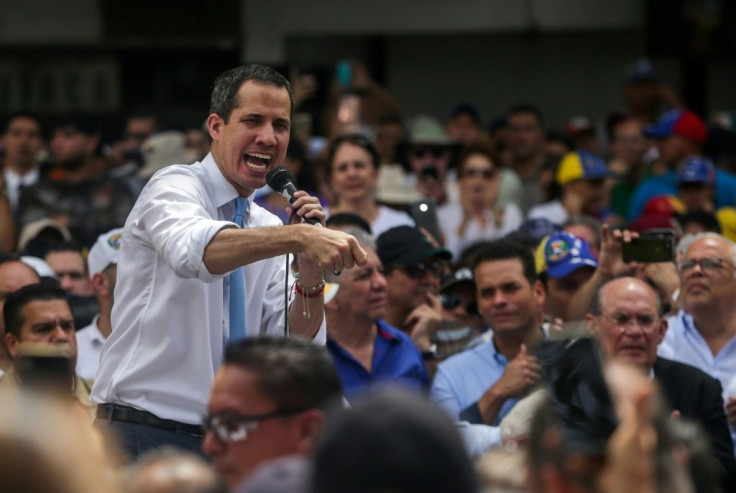
They arrested lawmaker Renzo Prieto, who had taken part in the demonstration. Prieto has been detained on two previous occasions. Two other lawmakers with him were also arrested but released.
"They took us, they kidnapped us, they intimidated us, they took away our credentials, cell phones," one of them, Sandra Castillo, told local media. She added that the incident "is not going to stop us."
Thousands of protesters had begun the march in east Caracas waving Venezuelan flags and caps in the national colors. Local media reported smaller protests in other cities.
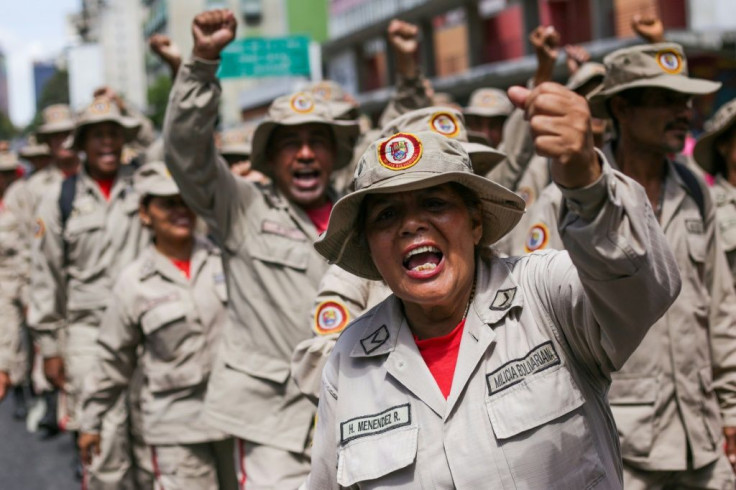
"Today we reconvene in the streets, the place where the citizens are free," said Guaido in a tweet.
With her face still smeared with a substance to protect herself from tear gas, one of the protesters, 54-year-old cook Katherine Croquer, moved quickly away from the clashes.
"That happens and it hurts, but I feel more courageous, with more desire to continue protesting," said Croquer, who added that her 24-year-old son was about to emigrate to Spain to try to find a better future.
A UN report released Tuesday showed that almost five million people have fled the country's ongoing economic crisis since 2015.
Guaido blames Maduro for the crippling, five-year economic crisis that has mired the once rich oil-producing country in deepening poverty and soaring inflation.
Pro-Maduro supporters held a counter-demonstration, where they shouted anti-Guaido slogans and called him a "traitor" for enlisting the help of foreign governments to heap pressure on Maduro's regime, particularly in the form of sanctions.
"Guaido has no chance at all!" said Zenaida Gamboa, a 63-year-old retired teacher at the demonstration.
Top Socialist Party figure Diosdado Cabello downplayed the police action against Guaido's march.
"They carried out acts of violence for a photo," he told his supporters. "What they wanted was a photo, because they believe they can topple the revolutionary government with a selfie," he said.
Guaido, who heads the opposition-controlled National Assembly, launched a movement to oust Maduro last year, claiming the leftist had usurped power in rigged 2018 elections.
After declaring himself acting president, Guaido quickly secured the backing of more than 50 countries and initially led street protests drawing tens of thousands of people.
But Maduro weathered the protests and maintained control of the powerful armed forces, while Guaido's popularity has waned.
Plunging oil prices in world markets Tuesday are the latest shock to the economy, which is almost entirely dependent on revenues from its declining, sanctions-battered oil industry.
"It's 30 years since prices fell like this, it's a tragedy," said Guaido in reference to Monday's plunge that took almost one-third off the price of oil.
© Copyright AFP {{Year}}. All rights reserved.





















